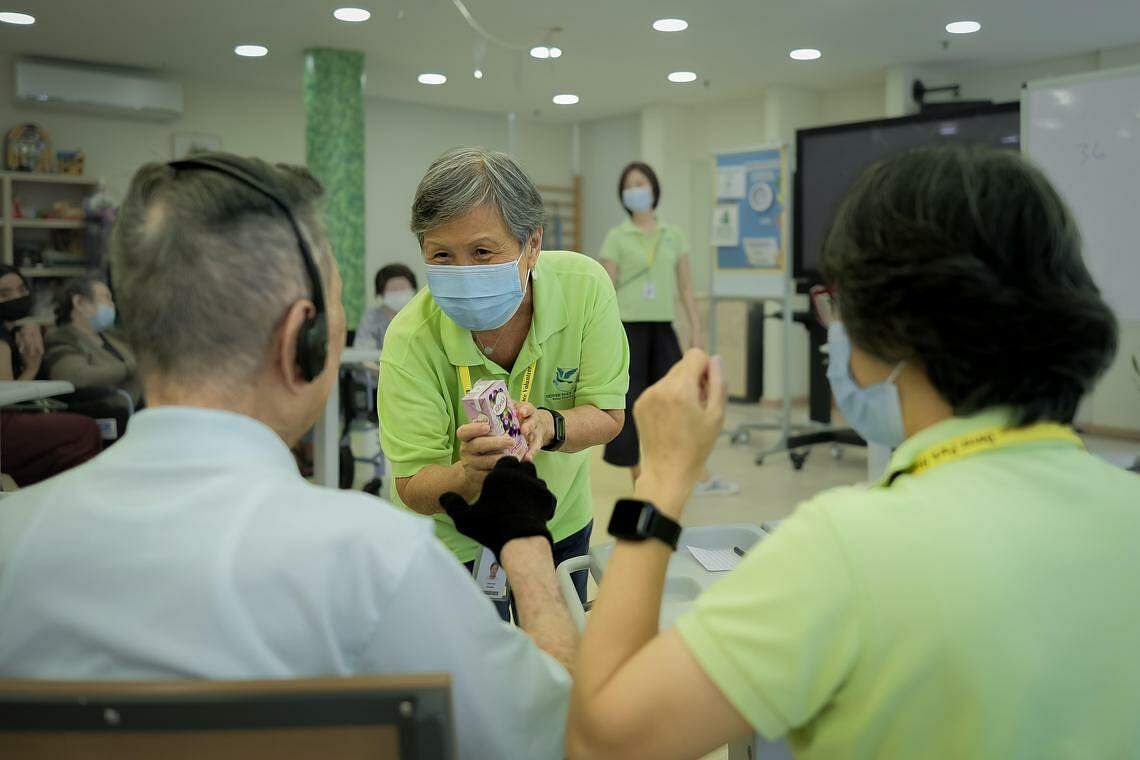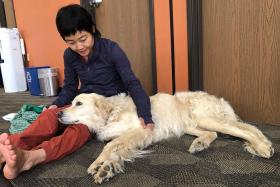Retired hairdresser has been cutting hair for the terminally ill for 26 years
After giving the patient a haircut, Madam Ivy Cheok Boon Kiew puts on the finishing touches by running a shaver along the side of his head, as a nurse holds him steady in his bed.
When she brushes the stray hairs off his shoulders, he flashes her a smile as if to say “thank you”.
Madam Cheok, a retired hairdresser in her 70s, has spent the past 26 years giving free haircuts to terminally ill patients in hospices around Singapore.
Her journey started during her days as a professional hairdresser in the 90s, when her regular customer told her about the plight of her son who had been diagnosed with cancer. Madam Cheok offered him free haircuts as the family was not well-to-do.
After seeing a call for hospice volunteers in the newspaper in 1997, she was inspired to take her hairdressing services further.
Madam Cheok started visiting the HCA Hospice and Dover Park Hospice, which were then in Novena, a few times a week to offer free haircuts to its patients. The HCA has since moved to Serangoon.
She fondly remembers an old man who looked forward to her visits and was always smiling as she cut his hair.
One day, he told her how he had been waiting for her all morning to get his hair cut. Not long after she was done, he died in his bed.
Madam Cheok said: “It was like he was holding on and waiting for his final haircut before he passed away.”
Today, whenever the hospice tells her there is a patient in need of a trim, she goes over with her handy set of hairdressing shears.
“I believe everyone should die with dignity. As long as my hands are still able to, I will continue doing this,” she added.
Another volunteer, Ms Linda Hart, 66, has been visiting Dover Park Hospice to befriend patients since 2014.
Her volunteering journey started after her good friend was diagnosed with stage 4 cancer and admitted to Dover Park. Ms Hart visited her friend there, but the woman died about two days later.
She said that befriending patients can be tough, as some just want to be left alone. But being able to lend a listening ear is what fulfils her.

She recalled a woman who had been labelled as “difficult” as she would chase away anyone who tried to talk to her.
Ms Hart took her time approaching the woman and let her open up at her own pace.
“I kept telling her that I will be back to check up on her. People are the way they are because of what they have gone through in life. It is not for us to judge.”
Another man who was warded at the hospice immediately opened up to her about his regrets in life, which included how he had treated his wife.
“He poured everything out to me even though I was a stranger – all the things he regretted and words he wished he could have taken back.”
Ms Hart advised him to speak to his wife about his regrets before it was too late, and he tearfully agreed.
“As a volunteer, sometimes the best thing you can do is to be there and listen, or hold someone’s hand. And sometimes, the people you help may not be the patients, but the families that they leave behind.”
Get The New Paper on your phone with the free TNP app. Download from the Apple App Store or Google Play Store now

